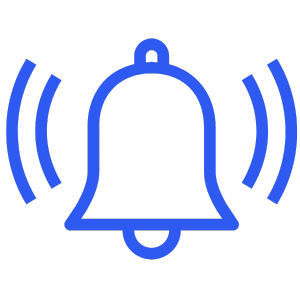Betting Responsibly: Setting Limits and Recognizing Problem Gambling
Responsible gambling refers to practices and policies that ensure gambling activities are conducted in a manner that encourages fairness and prevents harm. It involves creating an environment where individuals make informed decisions about their gambling, promoting awareness of the risks associated with gambling, and providing tools and support to help reduce the potential negative effects.
Setting limits on the amount of money and time spent gambling is crucial for maintaining control over gambling behaviors. Limits help prevent the development of gambling habits that can lead to financial problems, relationship issues, and emotional distress.

Understanding Gambling
Understanding gambling involves looking at various aspects such as the differences between recreational gambling and problem gambling, and the psychological factors that can lead to problem gambling. Here’s a breakdown of these elements:
Differences Between Recreational Gambling and Problem Gambling

Recreational Gambling: This form of gambling is characterized by gambling for fun, with personal limits set on how much money and time can be spent. Recreational gamblers can enjoy gambling without significant financial or personal consequences.

Problem Gambling: Also known as gambling addiction, this is an impulse-control disorder where individuals have little or no control over their gambling, often gambling more than they can afford and at the expense of their personal and professional lives. This form of gambling leads to significant issues including excessive debt, relationship problems, and other serious personal and mental health problems.
Psychological Factors That Lead to Problem Gambling
- Compulsion for Excitement: Gambling provides an adrenaline rush similar to other forms of entertainment. However, some individuals may develop a reliance on this thrill.
- Escape from Reality: For some, gambling serves as an escape from personal problems or stress, but it can quickly spiral into an addiction as they seek this escape more frequently.
- Cognitive Distortions: Problem gamblers often believe in illusions of control (overestimating their ability to influence outcomes), gambler’s fallacy (believing that past events affect future outcomes in independent events), and have an unrealistic optimism about winning chances.
- Social and Cultural Factors: Influence from peers or cultural norms can play a significant role in initiating and perpetuating gambling behaviors.
- Biological Bases: Research indicates that dopamine, a neurotransmitter in the brain associated with reward and pleasure, plays a significant role in addiction behaviors, including gambling.
Understanding these facets can help in identifying and managing gambling behaviors effectively, particularly for those at risk of developing a gambling problem.
Setting Limits
Setting limits on gambling is crucial for maintaining it as a recreational activity and preventing it from becoming a problem. These limits can be categorized into financial, time, and emotional boundaries. Here’s how you can manage each:
Financial Limits

Budgeting for Gambling: Treat gambling as a part of your entertainment expenses. Allocate a specific amount of money that you are comfortable losing, and ensure it does not interfere with your essential expenses such as bills, savings, and other financial commitments.

Tools and Resources for Tracking Spending:
- Mobile Apps: Use budgeting apps like Rocket Money or Wally, which can help you set and stick to your entertainment budget.
- Gambling-specific Tools: Many online gambling sites offer tools to limit deposits, losses, and wagers. Use these tools to preset your spending limits.
Examples:


Deposit Limits
What It Is: A deposit limit restricts the amount of money you can deposit into your betting account over a certain period—daily, weekly, or monthly.
How to Use It: Set a deposit limit that aligns with your monthly gambling budget. Once you reach this limit, you won’t be able to deposit more until the time period resets. This helps prevent impulsive deposits after losses.


Session Time Limits
What It Is: Session time limits restrict the amount of time you can spend gambling in a single session.
How to Use It: Use this tool to prevent prolonged gambling sessions, which can lead to fatigue and impaired decision-making. It’s a way to encourage breaks and reduce the potential for problem gambling.
Time Limits

Allocating Specific Times for Gambling: Schedule gambling activities just as you would schedule any other entertainment activity. Stick to these times strictly to avoid compulsive gambling sessions.

Importance of Taking Breaks and Setting Alarms: Regular breaks are essential to avoid the fatigue that can impair decision-making. Use alarms on your phone or watch to remind you to take breaks or to signal the end of a gambling session.
Emotional Limits

Recognizing Emotional Triggers for Gambling: Identify situations and emotions that push you towards gambling impulsively, such as stress, depression, or loneliness.

Strategies to Avoid Gambling When Stressed or Depressed:
- Seek Alternative Activities: Engage in other activities that you find relaxing or joyful such as exercising, reading, or spending time with friends and family.
- Professional Help: If gambling is often used as a coping mechanism for negative emotions, consider speaking to a therapist or counselor. Cognitive Behavioral Therapy (CBT) is particularly effective in treating problem gambling.
Setting these types of limits helps maintain gambling as a safe and enjoyable activity without allowing it to become detrimental to your financial health, time management, or emotional well-being.
Recognizing Signs of Problem Gambling

Recognizing the signs of problem gambling is critical for early intervention and preventing the development of a more severe gambling addiction. Problem gambling can manifest in various ways, including behavioral, emotional, and financial signs:
Behavioral Signs
- Increased Time Spent Gambling: Spending more time gambling than originally planned, or gambling for longer periods than intended.
- Lying About Gambling: Hiding gambling activities or lying about the extent of one’s gambling to family members, friends, or therapists.
- Chasing Losses: Continually gambling to try to recover losses from previous gambling sessions.
- Neglecting Responsibilities: Failing to meet work, school, or family obligations due to gambling activities.
- Withdrawal from Social Activities: Withdrawing from hobbies, social gatherings, or other interests to spend more time gambling.
Emotional Signs
- Mood Swings: Experiencing significant swings in mood related to gambling successes and failures, which can influence overall temperament.
- Increased Irritability or Restlessness: Feeling irritable or restless, especially when trying to cut down or stop gambling.
- Feelings of Guilt or Regret: Feeling severe guilt or regret after gambling sessions, especially after losses.
- Depression and Anxiety: Experiencing symptoms of depression or anxiety that are either triggered or exacerbated by gambling activities.
Financial Signs
- Financial Strain: Facing financial difficulties such as unpaid bills, maxed out credit cards, or a depleted savings account due to gambling losses.
- Borrowing Money to Gamble: Resorting to borrowing money from family, friends, banks, or even engaging in illegal activities to finance gambling habits.
- Unexplained Financial Shortage: Having frequent cash flow problems or unexplained shortage of money despite having a steady income.
Recognizing these signs can help individuals realize when gambling is no longer a recreational activity but a problem that needs attention. Early recognition and intervention are key to preventing the development of a gambling disorder and mitigating the negative effects on one’s life and health.
If you or someone you know is showing signs of problem gambling, seeking help from professionals such as therapists or counselors specializing in gambling addiction is advised.
Seeking Help and Resources
Self-help strategies for managing or recovering from problem gambling encompass a wide range of actions, from self-imposed restrictions to professional interventions. Here’s a comprehensive guide to some of the key strategies that can be effective:

Self-Exclusion Programs
Self-Exclusion: Most gambling venues and online gambling sites offer self-exclusion programs where individuals can request to be banned from accessing gambling facilities or platforms for a set period or indefinitely. This helps reduce the temptation and accessibility of gambling opportunities.

Joining Support Groups
Gamblers Anonymous: This is a 12-step program based on the model of Alcoholics Anonymous. It provides a community of support from others who are battling similar issues with gambling. Regular meetings help individuals share experiences and learn from each other.

Professional Help
Counseling and Therapy Options:
- Family Therapy: Can help address and repair the impact of gambling on family relationships and rebuild trust.
- Cognitive Behavioral Therapy (CBT): This form of therapy helps individuals recognize and change unhealthy gambling behaviors and thoughts.
- Motivational Interviewing: A counseling approach that helps individuals increase their motivation to change their gambling behaviors.
Legal and Financial Advising:
- Financial Counseling: Helps recovering gamblers address financial problems caused by gambling, such as debt management and budget planning.
- Legal Counseling: Offers assistance with legal issues that may have arisen from gambling, such as bankruptcy or fraud.
Leveraging Technology
Websites and Hotlines
- National Council on Problem Gambling: Offers tools and resources including a national hotline for immediate help.
- GamTalk: An online support forum where individuals can share their stories and support each other in recovery.
- Smart Recovery: Offers both online and face-to-face meetings worldwide for addiction recovery, including gambling.
These self-help strategies provide a solid foundation for managing and recovering from problem gambling. Combining multiple approaches, such as joining support groups while undergoing therapy, often yields the best results. The key is to acknowledge the problem and take proactive steps toward recovery, utilizing the available resources and support systems.
How to Support Someone Struggling with Problem Gambling
- Educate Yourself: Understanding problem gambling, its triggers, and its impacts can better equip you to help your loved one. Knowledge about the condition helps in handling situations more empathetically.
- Open Communication: Initiate conversations with your loved one about their gambling in a non-confrontational way. Express concern rather than judgment. Encourage them to talk about their feelings and challenges.
- Encourage Professional Help: Support them in seeking help from professionals such as therapists or counselors who specialize in gambling addiction. Offer to help them find suitable treatment options and accompany them to appointments if they want support.
- Support Groups: Suggest participation in support groups like Gamblers Anonymous. You might also consider joining a support group for families affected by gambling, such as Gam-Anon.
